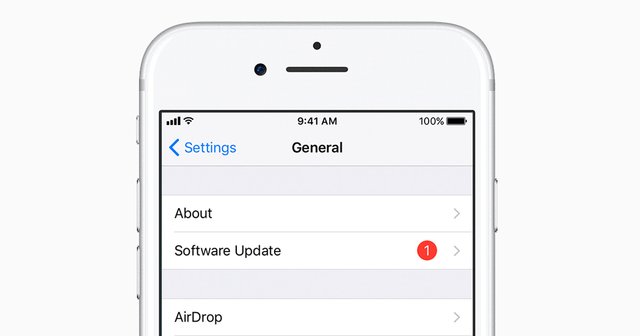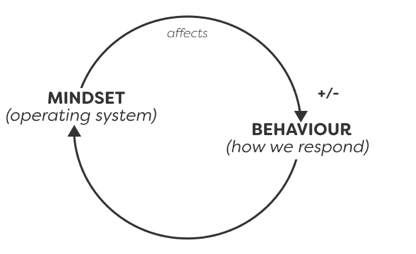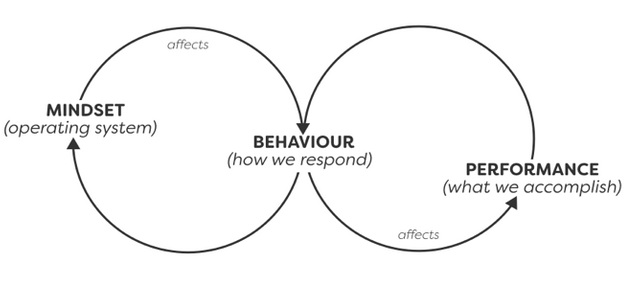Software Update: iOS is available for your mind. Install Now?

Chances are you’ve seen this notification before. It’s time for a software update. Do you install immediately? Eventually?…Maybe never?
It’s understandable why you might be among the majority of users who ignore these messages.
After all, the computer seems to be working fine, I don’t see any “bugs” and who has the time for upgrading and rebooting anyway?
As someone who is notorious for clicking “later,” “remind me tomorrow,” or whatever other option there is that isn’t now… I totally get it.
But what if software updates weren’t limited to computers? What if this message isn’t about your computer, but rather, your mind?
Would you install immediately? Eventually? …Maybe never?
In a 2011 interview, physicist Stephen Hawking declared: I regard the brain as a computer.
The way he saw it, the computer is an object that can store and process data – which the human brain certainly does.
In fact, this view —a position known as the computational theory of mind (CTM), is common in modern cognitive psychology and is presumed by many theorists of evolutionary psychology. It is also the basis of much artificial intelligence research.
So, there is good reason to believe Hawking had a point.
Of course, whether the brain is a computer is partly a matter of definition. The brain is obviously not a Macintosh or a PC.
Not to mention, it is often cited as the most complex object in the known universe. So, boiling it down to being “like a computer” simply doesn’t cut it for some theorists.
But what if there is real value and utility in subscribing to the idea that the brain is like a computer? What if we regarded our brain as a system that can regularly be upgraded and improved? Would it not be worth investigating how this might be so?
Let’s presume the physical brain you were born with and all its capabilities – raw intelligence, innate talents, natural strengths, shortcomings, etc. – is the hardware of your computer; the machines, wiring and other physical components.
And that all the elements of your brain that make it possible for you to think, feel emotions, and understand things is the central processing unit (CPU), or the processor; that core piece of hardware that performs all the calculations necessary to make the computer work.
In continuing with this analogy, if the hardware is your brain then the operating system (OS) – the most fundamental software that runs on your computer … well, that’s your mindset.
Your mindset is what you know and how you think – it’s your belief systems, thought patterns and reasoning methods. It’s the most important internal software because it controls everything you do, from how you respond to challenges, make decisions, take in new information, receive feedback, etc.

How we respond, in turn, affects our performance, our ability to accomplish a task, action or function.

Like the operating system on our computer, this system needs regular updates. We need to upgrade our mindset, to shift how we think and how we do things in order to improve our capabilities and performance.
This claim is backed by decades of scientific research – most notably with Carol Dweck’s work on Fixed vs Growth Mindset, which is used to describe the underlying beliefs people have about learning and intelligence; and more recently, with Dennis Stauffer’s work on Status Quo vs Innovator Mindset, which is used to describe one’s propensity to create something new and of value or as he calls it, valuable novelty.
But updating our mindset is not as simple as it is with computer updates, where you just click a button, wait a few moments and the updates are ready to use…. At least not yet.
It's not as simple as install now.
This is because no brain is created equal.
We all have a unique combination of strengths and weakness across a wide range of processes and capabilities, and alas, there is no one size fits all solution or a step-by-step guide for updating our mindset.
And so, to start, we have to want to do the difficult work of figuring it out for ourselves -- of conceiving, specifying, designing, programming, documenting, testing and bug fixing.
We have to want to be our own software developer, to re-pattern our thoughts and behaviours, a process we at Leading Minds Lab like to call innovation of self (iOS).
So, the next time you get a notification to update your software, think of your brain as a computer and use it as a cue to ask yourself: what personal upgrades am I working on?
Oh, and don't forget to click Install now
good article
Thank you! Would love to know more about what resonated with you? Been experimenting with different concepts to see what sticks in people's minds.
I upvoted your post.
Best regards,
@Council
Posted using https://Steeming.com condenser site.
Congratulations @leadingmindslab! You received a personal award!
You can view your badges on your Steem Board and compare to others on the Steem Ranking
Vote for @Steemitboard as a witness to get one more award and increased upvotes!